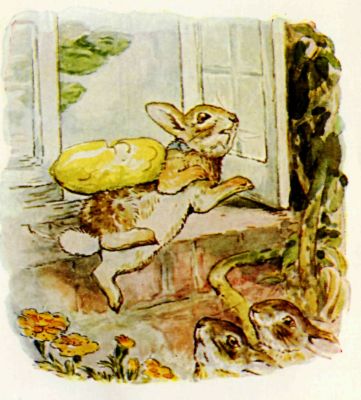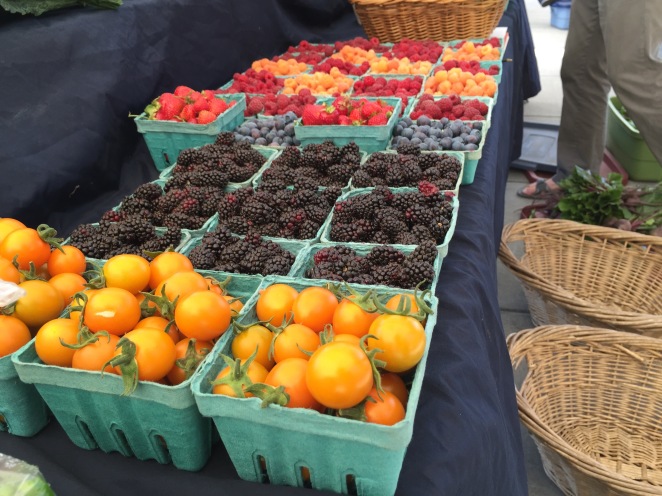‘All seasons, and their change; all please alike.’ Milton
The roses of June are now gone.
We’re moving rapidly through July, with all its over-blown, heat saturated splendor. Soon this blog will be checking in with the seasonable Mr. White of Selborne to see what he’s doing with his whortle-berries in late July of 1781.
But that’s for later. Now it is still roses, a book by Diane Ackerman, and a Curious Word courtesy of Charles Lamb (‘sciential’).
The garden, where I took these pictures, is Heirloom Roses, of St. Paul, Oregon.


Heirloom Gardens is no ordinary rose garden. It’s a wonderful resource for the rose connoisseur. For one thing, space isn’t really an issue. There are acres of roses to be seen in their display gardens. For anyone with a garden of normal proportions, who has ever wanted to see an old rambling species rose take over a pergola, or allow the mighty Kiftsgate to swathe an entire evergreen in its thorny embrace, you know that space is an issue. Few gardens have the room to indulge the passionate rose enthusiast with all the abundance of shape, size and drapery the world of roses can boast.

Rosa moschata, species rose
Thus, it is exciting to see species roses allowed to be all they can be.

This giant climber is almost identical to the Kiftsgate climber, but its name tag was too obscured to see.
I say that in all sincerity. It really is exciting. ‘Here be fountains’, cascades, waterfalls and mountains of roses. The air is perfumed with a fragrance that the likes of Cleopatra might have worn.
The digital memory of my rose garden tour is now stored on, and perilously afloat, what I call the If and Ineffability of iCloud data storage. Download-able at any moment, and lose-able more often than that.
Just as precariously, the memories of my June rose adventures are now packaged in little quivery bundles of ephemera I house in my neurons. The wafting esters of scent, the tactility of petals, the rustle of sound as I moved my dreamlike tread over freshly mowed lawn; these impressions have been shelved in my mind alongside the enormous database of other neurons of memory.


Fragrance, though, is the great fixative of memory. Scent fixes memory to an emotion and pins us to that place in time. It is the download button for instant retrieval of data, and an instant rush of accompanying sensations.
What is fixative? It is a term used in the perfume and fragrance industry. Every famous, lingering scent has a fixative. These began as natural substances—often animal derived, such as musky civet oil— that will preserve and stabilize that which is volatile. Fragrance on the skin can be volatile, as the accompanying look in the eye may well be. But the fragrance can be released into the air where it will dissipate quickly unless it is given staying power with a fixative.
In A Natural History of the Senses, Diane Ackerman wrote:
‘Nothing is more memorable than a smell… [they] detonate softly in our memory like poignant land mines, hidden under the weedy mass of many years and experiences. Hit a tripwire of smell, and memories explode all at once. A complex vision leaps out of the undergrowth.’
Ackerman is called ‘the finest literary interpreter of science and nature’, and for good reason. Her work, A Natural History of the Senses is my go-to book whenever I want scientific answers to questions I never thought of asking, and poetic descriptions I never thought of writing.

Another great thinker, Virginia Woolf, wrote, in her ground-breaking work A Room of One’s Own:
‘We think back through our mothers, if we are women.’
This, in the light of current science and the unfolding mysteries of mitochondrial DNA, is a potential powerhouse of possibility. ‘A complex vision leaps out of the undergrowth…’
For surely there is a dimensional quality to scent and fragrance that goes far beyond the physical aspects of touch or sight. There is so much in the physics and neuroscience of smell that scientists still don’t understand. It is likely that our mothers, and all the mothers of distant mothers who stretch back through the centuries, loved roses.
Is it possible that our own deep inhalations takes us back through those centuries of memory? Some roses are centuries old. We may not realize the process that is at work every time we take a breath, swill it through our own essence, and exhale it ‘gently altered for having known us‘; but our inner selves remember moments most vividly through the medium of scent.

Diane Ackerman, not surprisingly, would reference Marcel Proust, ‘that great blazer of scent trails through the wilderness of luxury and memory’, as an example of a writer who captured ‘flights of comprehensive remembrance’ based on the power of a chance encounter with a smell.
Ackerman writes evocatively of the Song of Songs–The Song of Solomon–‘the most scent-drenched poem of all time’.
She relates her adventures tagging Monarch butterflies, studying Indonesian flying foxes in Texas, and interviewing that brilliant prodigy of noses, Sophia Grojsman— “For a world-class nose on a deadline she seems relaxed and alert”.
She takes us on an imaginary tour to the boudoir of an ancient Egyptian beauty, mixing and applying her fragrant unguents in preparation for a dinner party.

And of course she writes about roses. In all of this she gives forth her observations and understanding in the most lyrical prose. It’s a beautiful book to read, whether you are strolling a rose garden with a parasol or striding about the Giza plateau in a pith helmet.
Since the time worn cliché has become more of dictum that resembles ‘call your Mother’.… We shall, instead, linger in our perambulations and breathe deeply of Milton’s roseate dews.
But go ahead and call your mother.
‘For we think back through our mothers if we are women’….said Virginia.
(began here, and to be continued)






















